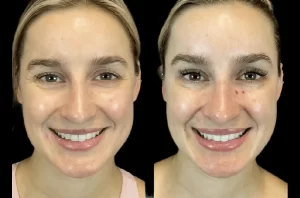A Personal Choice in a Changing World
In a world that’s increasingly leaning toward body autonomy and women’s rights, one medical procedure is gaining quiet traction, cloaked in privacy, cultural layers, and evolving values: hymen repair surgery. Often misunderstood and controversial, the procedure is emerging from the shadows, not as a symbol of shame, but as a declaration of ownership over one’s body. Whether driven by cultural expectations, personal reasons, or emotional healing, more women are now reclaiming this choice for themselves. Right at the intersection of modern medicine and personal autonomy is the hymen operation, a phrase once whispered but now cautiously entering the mainstream dialogue.
Understanding the Rise
The rise in demand for hymen repair is subtle yet steady. Clinics across regions in Europe, the Middle East, Asia, and North America report a noticeable increase in consultations for hymenoplasty, the medical term for hymen repair surgery. However, it’s not just the number of surgeries rising — it’s the shift in perception. The silence surrounding it is starting to fade as women begin to share their stories, sometimes anonymously, and advocate for their right to choose without judgment.
The procedure, often completed in under an hour, reconstructs the thin membrane partially covering the vaginal opening. While medically minor, the emotional and psychological implications can be deeply significant. For many, it represents a return of agency — a reversal of trauma or societal pressure, or simply a personal decision made in privacy.
Beyond the Taboo
Historically, virginity has carried intense social, cultural, and sometimes even economic weight. In various societies, the condition of the hymen has been mythologized into a measure of morality and worth. This belief has led to widespread misinformation, and in extreme cases, harmful practices. Hymen repair, for some women, offers a way to protect themselves from such judgment or danger.
But this is not just a story about tradition — it’s about transformation. More women now are choosing the procedure for reasons entirely detached from cultural obligations. Some seek it after sexual assault, as a way of taking back control. Others view it as a means of reclaiming their body after an experience they didn’t choose. And still others see it as no different from any other cosmetic surgery: an option available to them simply because they want it.
This evolution in motivation marks a significant shift. The quiet rise of hymen repair is not necessarily a reflection of continued oppression, but rather an assertion of individual choice in navigating complex personal and social landscapes.
Navigating Ethics and Criticism
Despite its increasing popularity, hymen repair remains heavily debated. Critics argue that it reinforces outdated notions of virginity and purity, and some feminists see it as a step backward in the fight for gender equality. Medical professionals often grapple with the ethical dimensions: should the procedure be supported if it reinforces harmful beliefs, even if it’s requested by a consenting adult?
Yet, autonomy is the heart of ethical medical care. Dismissing a woman’s choice, even in complex or uncomfortable circumstances, risks replacing one form of control with another. If a woman chooses hymen repair out of free will, to deny her that option under the banner of ethics becomes a contradiction.
The most progressive approach lies in information and consent. If women are making informed decisions, without coercion or misinformation, then their autonomy must be respected. The focus should not be on the procedure itself, but the context in which the decision is made — and the support systems that surround it.
A Call for Compassion and Confidentiality
One of the key reasons women hesitate to undergo hymen repair or even inquire about it is fear of judgment. The stigma attached to the surgery can be intense — from the community, medical staff, and even from within feminist circles. Confidentiality is crucial. Safe and private access to healthcare providers who are trained not just technically but emotionally can make all the difference.
As the conversation becomes more open, there’s hope that empathy will replace judgment. Each woman’s story is unique. Some may carry shame or fear; others carry courage and resilience. All deserve dignity. Whether it’s about preparing for a marriage, coping with past trauma, or simply making a personal choice, the journey to hymen repair should not be burdened with societal shame.
Medical professionals, policymakers, and advocates must work together to ensure that women feel supported — not silenced. As with any procedure related to sexual and reproductive health, discretion and dignity must be at the forefront.
The Future of Hymen Repair
Looking ahead, the landscape surrounding hymen repair is bound to change further. With better access to information, more trained professionals, and evolving societal norms, the quiet rise of this procedure may become a louder affirmation of body autonomy. Education plays a pivotal role. Dispelling myths about virginity, anatomy, and sexuality will help create an environment where such surgeries are not needed to conform but chosen freely.
There’s also a growing role for technology. With online platforms offering telemedicine consultations and discreet care pathways, access to hymen repair is becoming easier and more anonymous. For many women, this means the ability to seek care without public exposure or community backlash.
Legal and regulatory frameworks may also adapt, ensuring that procedures like these are not driven underground or left in legal grey zones. With proper regulation, medical transparency, and ethical care, hymen repair can exist not as a taboo but as a legitimate choice within reproductive healthcare.
Conclusion
The decision to undergo hymen repair is deeply personal. It doesn’t always come with easy answers, and it may never be fully free from societal pressures. But what’s changing — and changing rapidly — is the conversation. Women are no longer waiting for permission to make decisions about their bodies. They’re asserting it quietly, powerfully, and sometimes through procedures like hymen repair.
At its core, this is not just a story about surgery. It’s a story about ownership — about reclaiming the body and rewriting the narrative. Whether or not one agrees with the practice, the underlying principle remains: Her body, her decision. For women seeking discretion, safety, and support, Hashinvasive stands as a trusted name in empowering personal choice through compassionate and confidential care.






